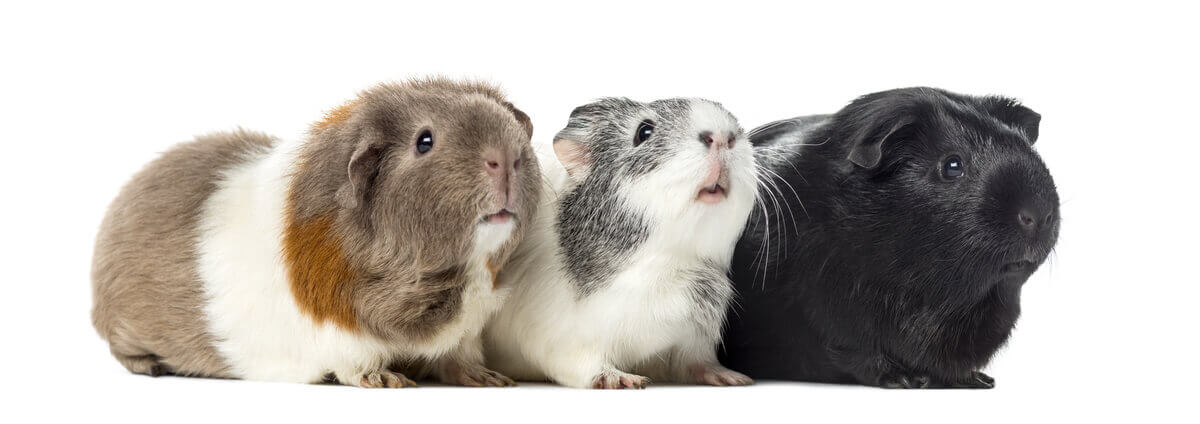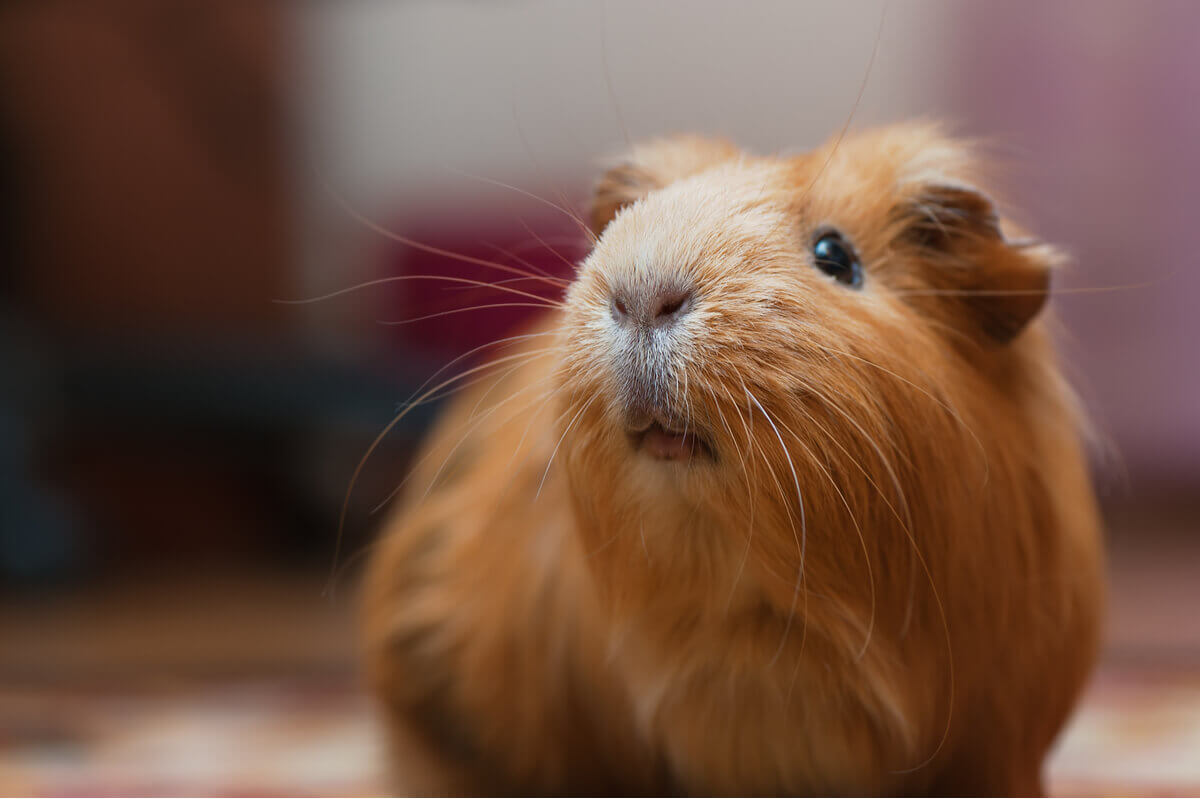Why Do Guinea Pigs Squeal? Find Out Now!


Written and verified by the biologist Samuel Sanchez
Guinea pigs are called “Cuys” in some countries of South America. This name has an onomatopoeic origin and it refers to the vocalizations that these rodents emit regularly, in both domestic and wild environments. In this article, we pose the following question: Why do guinea pigs squeal? If you want the answer, we encourage you to read on.
Communication in the animal world is a fascinating evolutionary process, and, for this reason, various ethological researchers are trying to decipher the meaning of language in the different species in the animal kingdom.
About guinea pigs
Before entering fully into the world of guinea pig communication, we need to define the species in question. Surprising as it may seem, the guinea pig (Cavia porcellus) is a species of hybrid rodent belonging to the family Caviidae. These curious pets are the result of the crossing of diverse species of the Cavia genus, such as Cavia aparea or Cavia magna.
Some of the differential characteristics of these small mammals are the following:
- They come from the Andean region of South America
- They weigh about 2 lbs and live between five and eight years
- Guinea pigs are herbivorous animals and require a continuous supply of fiber and vitamin C to enjoy good health
- This species has different morphotypes, which differ by the color arrangement and nature of their coat.
- They’re affable, calm rodents, and live in social groups.
It’s this last characteristic that gives us the first clue as to why guinea pigs squeal. If an animal lives in a society, it has to have some way of communicating with its relatives, right?

So, why do guinea pigs squeal?
As simple as the question may seem, several ethological studies have designed experimental models to discover the reason for these vocalizations. This task is certainly not a simple one. Besides the existence of variations at an individual level, the squeals seem to have a different meaning according to the age of the guinea pig.
The guinea pig is especially multifaceted since, according to this research, it’s capable of emitting up to 11 different tonalities. Some of them respond to the following situations:
- Guinea pigs (especially the youngest ones) emit more audible sounds when they are in a new environment. This coincides with cortisol level increases in their bodies, a stress-related hormone.
- When separated from their mothers, the guinea pigs emit calls out of loneliness, which are accompanied by an increase in the animal’s movements and general agitation. Once the little ones return to their parents, the mothers emit a series of purrs to calm their offspring.
However, not everything is linked to the relationship between mothers and their children, since many other vocalizations are related to other processes. Up next, we’ll be mentioning some examples.
A sound for every situation
Several studies have researched when, how, and why different vocalizations occur in various situations. These are some of the results:
- The chortle is the most common vocalization among guinea pigs. It seems to be present in all kinds of situations, whether they’re social or not. The emission of these preliminary sounds is very present when two individuals meet and try to identify each other. In addition, these sounds are later substituted by other noises more appropriate to the situation.
- The moaning sounds they make are produced, in general, when a situation causes discomfort in the animal. For example, when a non-receptive female is approached by a reproductive male.
- The squeaking sound is produced when the guinea pig experiences some type of physical pain.
There are many more sounds and noises emitted by guinea pigs, but one idea is clear: guinea pigs squeal to communicate with each other. Each tone has a specific function, and, from an evolutionary point of view, it’s much more effective to warn others of a negative interaction with a sound than with a physical activity that requires more energy.

A matter of sociability
As we’ve seen, social animals such as guinea pigs have developed complex linguistic mechanisms to communicate different feelings and emotions. This is beneficial for all members of the group since they can detect danger more quickly and avoid unnecessary fights among themselves.
In the animal world, everything has a biological response. Therefore, if you have a guinea pig at home, we encourage you to try to understand in what situations and with what frequency it produces these noises. After all, it may be trying to convey a message, such as continuous stress or feeling of loneliness.
All cited sources were thoroughly reviewed by our team to ensure their quality, reliability, currency, and validity. The bibliography of this article was considered reliable and of academic or scientific accuracy.
- Arch-Tirado, E., & Collado-Corona, M. A. (2002). Análisis de vocalizaciones en periodos de soledad en cobayos recién nacidos, como normo-oyentes y con sordera provocada. Cirugia y Cirujanos, 70(6), 442-448.
- Cavia, wikipedia. Recogido a 28 de julio en https://es.wikipedia.org/wiki/Cavia
- Verduzco-Mendoza, A., Alfaro-Rodríguez, A., & Arch-Tirado, E. (2012). Etología y bioacústica en ratas y cobayos. Revista Mexicana de Comunicación, Audiología, Otoneurología y Foniatría, 1(1), 7-12.
- Berryman, J. C. (1976). Guinea‐pig vocalizations: Their structure, causation and function. Zeitschrift für Tierpsychologie, 41(1), 80-106.
This text is provided for informational purposes only and does not replace consultation with a professional. If in doubt, consult your specialist.